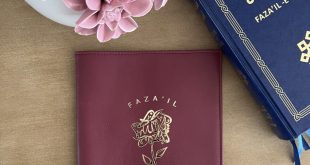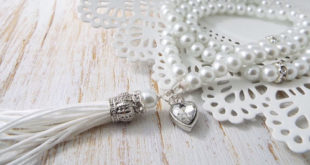 One should recite the following duaa after salaah:
One should recite the following duaa after salaah:
لَا إِلَهَ إِلَّا اللهُ وَحْدَهُ لَا شَرِيكَ لَهُ، لَهُ الْمُلْكُ وَلَهُ الْحَمْدُ وَهُوَ عَلَى كُلِّ شَيْءٍ قَدِيرٌ، لَا حَوْلَ وَلَا قُوَّةَ إِلَّا بِاللهِ، لَا إِلَهَ إِلَّا اللهُ، وَلَا نَعْبُدُ إِلَّا إِيَّاهُ، لَهُ النِّعْمَةُ وَلَهُ الْفَضْلُ، وَلَهُ الثَّنَاءُ الْحَسَنُ، لَا إِلَهَ إِلَّا اللهُ مُخْلِصِينَ لَهُ الدِّينَ وَلَوْ كَرِهَ الْكَافِرُونَ
There is no deity besides Allah Ta’ala alone, who has no partner. To Him belongs the kingdom (of the entire universe), and for Him is all praise and He has power over everything. There is no ability (to avoid sins) and no power (to do good) except with the help of Allah Ta’ala. There is no deity besides Allah Ta’ala and we worship none but Him. All bounties and favours are solely for Him (in His hands), and all beautiful praises are for Him alone. There is no deity besides Allah Ta’ala, (we believe in this) with devoting our ibaadat and Deen solely for Him, even though the disbelievers dislike it.
عن أبي الزبير، قال: كان ابن الزبير، يقول: في دبر كل صلاة حين يسلم: لا إله إلا الله وحده لا شريك له، له الملك وله الحمد وهو على كل شيء قدير، لا حول ولا قوة إلا بالله، لا إله إلا الله، ولا نعبد إلا إياه، له النعمة وله الفضل، وله الثناء الحسن، لا إله إلا الله مخلصين له الدين ولو كره الكافرون. وقال: كان رسول الله صلى الله عليه وسلم يهلل بهن دبر كل صلاة (مسلم رقم 594)
Hazrat Abu Zubair (Rahimahullah) reports that Hazrat Abdullah bin Zubair (Radhiyallahu Anhu) would recite the following duaa after completing the salaah with salaam, and Hazrat Abdullah bin Zubair (Radhiyallahu Anhu) said that Rasulullah (Sallallahu Alaihi Wasallam) would recite the same duaa after every salaah:
لَا إِلَهَ إِلَّا اللهُ وَحْدَهُ لَا شَرِيكَ لَهُ، لَهُ الْمُلْكُ وَلَهُ الْحَمْدُ وَهُوَ عَلَى كُلِّ شَيْءٍ قَدِيرٌ، لَا حَوْلَ وَلَا قُوَّةَ إِلَّا بِاللهِ، لَا إِلَهَ إِلَّا اللهُ، وَلَا نَعْبُدُ إِلَّا إِيَّاهُ، لَهُ النِّعْمَةُ وَلَهُ الْفَضْلُ، وَلَهُ الثَّنَاءُ الْحَسَنُ، لَا إِلَهَ إِلَّا اللهُ مُخْلِصِينَ لَهُ الدِّينَ وَلَوْ كَرِهَ الْكَافِرُونَ
 Ihyaaud Deen An Effort to Revive Deen in Totality
Ihyaaud Deen An Effort to Revive Deen in Totality



